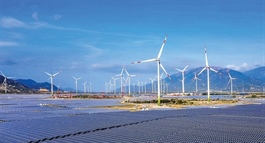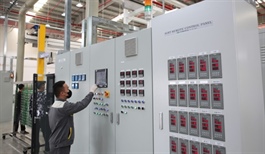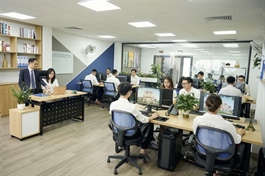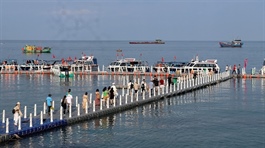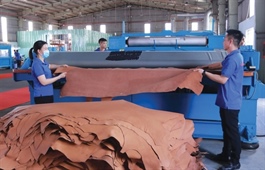Retail and consumer goods firms brace for economic headwinds
Retail and consumer goods firms brace for economic headwinds
Retail and consumer goods firms are restructuring and optimising costs to prepare for potential economic turbulence in the second half of 2025.
The first half of 2025 saw significant volatility in Vietnam’s financial markets, especially in early April, amid concerns over US countervailing tariffs.
The stock market, however, quickly rebounded, with both indices and individual stocks climbing to new highs.
Even as specific tariff rates for diverse countries have now been announced, the local stock market has remained stable, trading at its highest levels of the year.
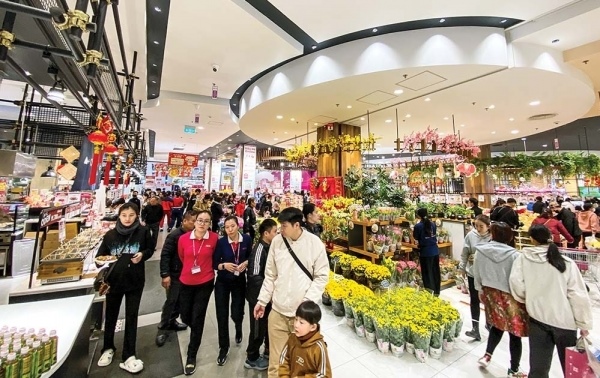
The retail sector has been forecast to make a rebound this year |
According to the Ministry of Finance’s National Statistics Office, total retail sales of goods and services in the first six months of 2025 approximated $136.7 billion, marking a 9.3 per cent increase on-year.
The electronics retail sector, in particular, has sustained its expansion momentum.
The sector’s leading player, Mobile World Investment Corporation, reported revenue touching $2.95 billion, showing a 12.4 per cent jump, and a 54.4 per cent surge in net profit on-year to $128.2 million, fulfilling 66.1 per cent of its full-year plan.
FPT Retail, the retail arm of tech giant FPT Corporation, posted a revenue increase of 26.1 per cent to reach $922.4 million, while net profit soared 239 per cent to $14.8 million, reaching 53.2 per cent of its full-year target.
Meanwhile, PetroVietnam General Services Corporation (Petrosetco), a top-tier distributor of mobile devices, ICT equipment, household electronics, and electronic accessories, maintained stable revenue at $349.5 million, with net profit rising 18 per cent on-year to $4 million.
So far, domestic consumer demand has remained resilient in the face of tariff concerns. However, growing unease is evident as many importers have accelerated stockpiling of goods and raw materials, aiming to take advantage of delayed tariff enforcement.
Analysts have responded with caution, forecasting potential headwinds for export activities in the second half of the year, particularly in key sectors such as seafood and textiles.
Although not directly impacted by the tariffs, retail businesses are increasingly wary of indirect effects on consumer behaviour and have started rolling out adaptive strategies.
In a meeting with investors last month, Danny Le, CEO of Masan Group, noted that the company is restructuring its distribution network, shifting from reliance on major retailers to expanding direct access to small shops.
Regarding branding, Masan remains confident in its current product portfolio and is focusing on innovation after stabilising operational foundations. Technology adoption is also being leveraged as a long-term growth driver.
“We’ve increased store coverage to 62 per cent. This approach not only helps us navigate current disruptions but also reflects our long-term vision,” said Le.
Masan is also renegotiating interest rates on existing loans, expecting to save approximately $20 million in interest expenses over the next four years.
Similarly, FPT Retail is proactively navigating macroeconomic and trade policy uncertainties.
According to Pham Duy Hoang Nam, CFO of FPT Retail, the company has been building flexible response scenarios from early in the year, focusing on three key directions.
First, the FPT Shop chain is working with partners to ensure competitive pricing and stable supply, particularly for products vulnerable to tariff impacts. Diversifying into categories like electronics and services will help mitigate market risks.
Second, the Long Chau pharmacy chain remains a key growth driver. FPT Retail is continuing to expand its store network, invest in technology, and launch campaigns such as those on ensuring transparent product origins to strengthen consumer trust.
Third, the company is enhancing operational efficiency by reviewing store performance and using data analytics to improve forecasting and productivity.
“With these strategies in place, we expect to sustain growth and fulfill our 2025 business targets,” Nam said.
Overall, while retaliatory tariffs have not yet had a visible impact, domestic retail and consumer goods firms are taking proactive steps, strengthening internal operations, optimising costs, and restructuring systems, to brace for what could be a challenging period ahead.
- 13:06 05/08/2025





